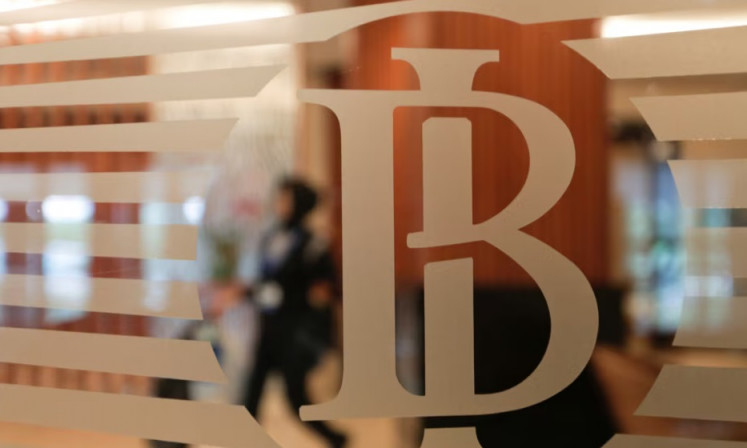Popular Reads
Top Results
Can't find what you're looking for?
View all search resultsPopular Reads
Top Results
Can't find what you're looking for?
View all search resultsINSIGHT: Interfaith dialogue: The need to tackle some thorny issues
Nobody knows exactly when and if the United Nations will eventually declare this year the start of a decade of interfaith dialogue
Change text size
Gift Premium Articles
to Anyone
Nobody knows exactly when and if the United Nations will eventually declare this year the start of a decade of interfaith dialogue. The idea of making it this year has been considered by those who are actively engaged in religious dialogue and cooperation of people of different faiths. Indeed, interfaith dialogue has become fashionable in the last few years. Even world leaders are now beginning to realize and take into account the importance of dialogue among people of different faiths.
It is an irony, but Samuel Huntington deserves part of the credit. The recent surge in religious dialogue has been made possible in part by his provocative observation on the clash of civilizations. Certainly, the dreadful attacks on the Twin Towers of the World Trade Center (WTC) on Sept. 11, 2001 solidified the importance of interfaith dialogue.
But interest in religious dialogue is by no means a novel issue. Long before, the importance of religious dialogue had been raised by several institutions such as the World Conference on Religion and Peace (WCRP) as well as the Asian Conference on Religion and Peace (ACRP). Countries that became members of these organizations developed their own organizations with the same interest.
Indonesia is no exception. A home to nearly 240 million people, it not only comprises multi-ethnic groups, but also different religious denominations with Islam being the religion of the majority. Without proper management, these ethno-religious cleavages could be a nightmare for whoever controls the state as they may well serve as a source of tension.
So, concern over religious harmony has been part of the government policy. Historically, tensions involving the existing religious denominations had occurred in pre-independent Indonesia. They were not necessarily religious in nature, but often related to politics. The struggle for political authority in Java in the 15th century, for instance, had involved peoples with different religious beliefs. This sorry phenomenon continued well after independence. The debate over national ideology, on what sort of ideology the Indonesian state should be based (i.e. Islam or Pancasila) had created tension between Muslims and non-Muslims. This politically motivated tension reached its height in the ‘50s.
Although such tension subsided in the 1960s, partly because of President Sukarno’s decision to bring the debate to a halt, different forms of religious tension began to develop. Most of the time, these religious conflicts involved proselytization activities, building places of worship (mosques and churches in particular) and overseas donations. Once in a while, tension among different religious adherents heightened because of different interests in legal arrangements. Because of this, many are of the opinion that religious tension has become an imminent issue.
This has made the government take necessary measures to prevent or minimize conflict. In this regard, at least three major measures have been taken. First, recognizing the existing religions; previously, recognition was given only to Islam, Catholicism, Protestantism, Hinduism, and Buddhism. Only recently has Confucianism also been recognized. Second, establishing inter-religious forums. Third, encouraging and sponsoring dialogue.
Unfortunately, this has been the concern of primarily the Ministry of Religious Affairs. It had never been the concern of any other Ministries until a few years ago, when the Ministry of Foreign Affairs regarded interfaith dialogue as part of its public diplomacy. Working with its counterparts in Australia, New Zealand, and the Philippines, the Netherlands, the Vatican, Canada and Italy, the Ministry of Foreign Affairs has regularly conducted interfaith dialogue meetings.
But it is actually the NGOs that have a far deeper concern over the imminent nature of religious tension and conflict. Many socio-religious organizations such as the Muhammadiyah, the Nahdlatul Ulama, the Indonesian Communion of Churches (PGI), the Indonesian Council of Bishops (KWI), the Indonesia Confucianism High Assembly (Matakin), the Indonesian Buddhist Association (Walubi), etc. are actively involved in interfaith dialogue.
Their main concern has been to encourage dialogue among different religious denominations so that they can arrive at a common platform that regulates their activities. They believe through dialogue they can understand the issues and problems better. It opens up a window of opportunity to reach a common understanding that is instrumental in solving whatever problems they are facing. Through dialogue, it is hoped that religious conflict can be avoided.
There are many issues being addressed by those who are engaged in the campaign for interfaith dialogue. These include religious freedom, human rights, religious cooperation, respect for others’ beliefs, disarmament, globalization and so on and so forth.
Unfortunately, they often fail to tackle some thorny and burning issues that may well have served as sources of tension and conflict. These issues usually do not concern theological or philosophical matters in religions, but practical ones. Cases in point are, as mentioned earlier, building places of worship, religious proselytization activities, burial, or overseas donations. Because of that, they fall short of taking the necessary steps to solve the above practical problems.
It is comforting to know that interest in religious dialogues is on the rise. Yet at the same time, religious leaders are confronted with the question of the sustainability of a dialogue. Often, a dialogue is not conducted at regular intervals, so then different people are involved. They are inclined to start from scratch, which has hampered the further development of a dialogue.
Unless some kind of permanent working group is set up, and thorny issues are being discussed, interfaith dialogue will have no significant impact in our effort to create a peaceful coexistence among people of different religious beliefs.
The writer is a professor of political science at the State Islamic University (UIN), Jakarta.










